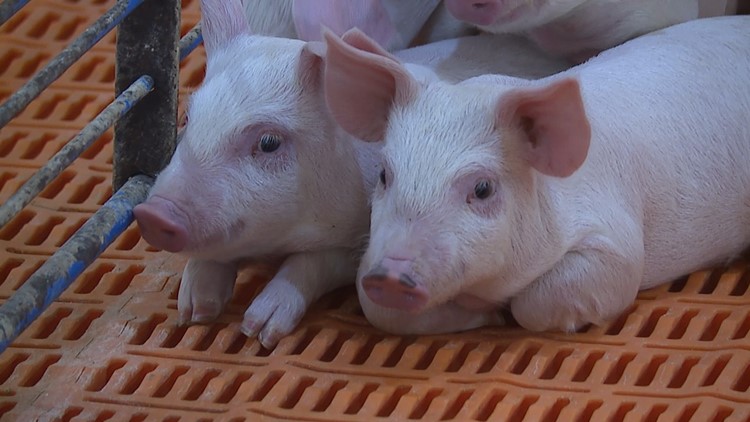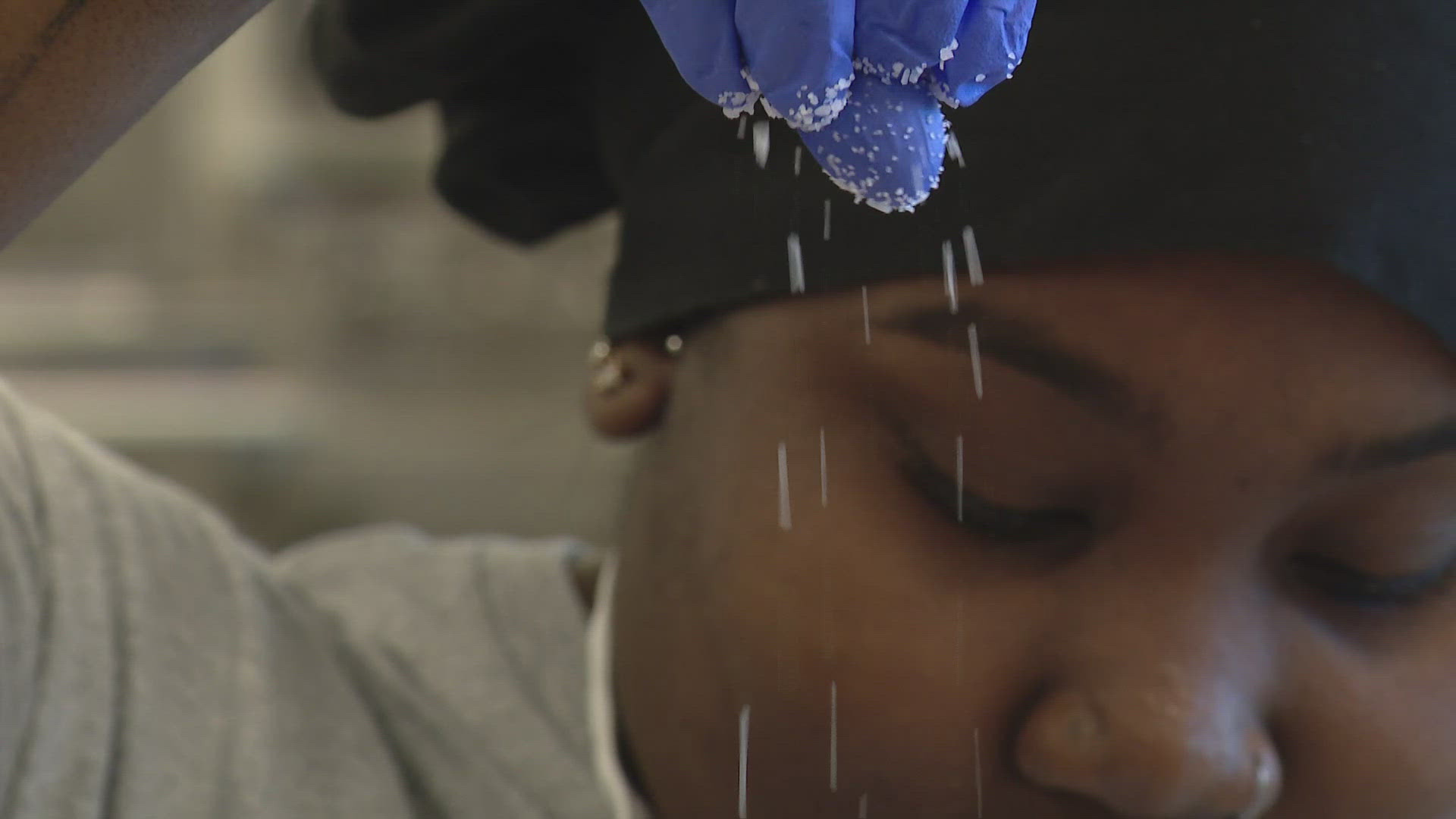MISSOURI, USA — A deadly virus has financially devastated the global pig and pork industry for decades.
Porcine Reproductive and Respiratory Syndrome (PRRS) virus was first discovered in the U.S. in 1987. It has since been found to have a high mortality rate, high rate of spread, and causes pigs who contract it to have difficulty gaining weight and giving birth. The virus was last estimated to cost the U.S. pork industry around $660 million annually and contributes to an unstable food supply.
Breakthrough research from the University of Missouri may help change that. The disease has been labeled "incurable" because vaccines aren't effective against it due to the virus' infection of white blood cells, according to Randall Prather, the director of MU's National Swine Resource and Research Center. So, instead, researchers sought to create pigs that were genetically resistant to the virus.
Prather and MU have been working with a Belgium-based company called Genus PIC. The collaboration used the genome editor CRISPR and removed parts of pig genes that the virus uses, which reportedly created pigs resistant to the virus.
"There's a molecule that sticks up on the cell's surface ... that's the host factor, the factor that's on the pigs that the virus uses to recognize the pigs. Well we completely got rid of it, and then when you infect the pigs ... nothing happens to the pigs," Prather told 5 On Your Side. "We have a three-billion letter genome in the pig. We can change a couple letters of that genome and we make pigs that don't get PRRS."
Genus PIC recently announced it would begin seeking a first-of-its-kind Federal Food and Drug Administration (FDA) approval for human consumption of genetically altered pigs. The research, however, isn't new. Prather and MU originally published and patented their findings in 2015, but the FDA approval process often takes years and generations of pigs, a fact that frustrates Prather.
"Why does it take so long? It's because of all the requirements FDA is putting on it," Prather said. "In the past, the FDA has required three generations. If you made that animal day one, you've got at least three years before approval ... they want to show [the genetic modification] is inherited every generation, even though there's a vanishingly small amount of information out there that would suggest it's not inherited."
The FDA told 5 On Your Side its approval process for "intentional genomic alterations" (IGA) focuses on protecting public and animal health. The process includes:
- Product characterization: Whether the IGA is present in the animals.
- Phenotypic characterization: Whether the IGA is causing issues to the health and safety of the animals.
- Durability assessment and plan: Whether the IGA is present in the animals for their lifespan while developing a plan to monitor the safety and effectiveness of the IGA post-approval.
- Food safety: Whether there are any direct or indirect risks associated with eating products from animals with the IGA.
- Effectiveness: Whether the IGA does what the developer claims.
The FDA couldn't provide a specific timeline for pending applications, but said the general approval process depends on how long it takes a sponsor to submit a full application with all technical sections included. The FDA also said long gaps could exist between different sections' submissions.
Top St. Louis headlines
Get the latest news and details throughout the St. Louis area from 5 On Your Side broadcasts here.



